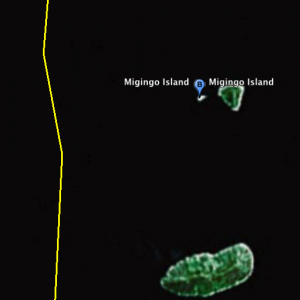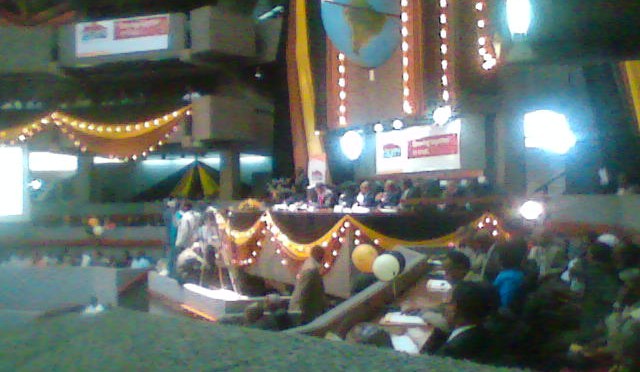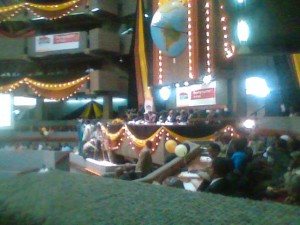
A year ago wrote this on the information availed to Ugandan investors by their companies; this year the envy is even more, it makes me sad; that by being the leading country in the region, we may not notice we are being passed in some aspects of investor awareness & rights.
Use of E-Mail: The Stanbic Uganda invitation/AGM notice again arrived by e-mail; now many Kenyan companies have passed by-laws allowing them to send out e-mail notices and annual reports to shareholders, but none has done so far. Maybe, with the eventual passage of the much-maligned/controversial communications bill the legal framework is now there to back enable this – but we’ll see; While not every shareholder will have an e-mail account, if 1/4 of 1/3 of some company’s shareholders (Kengen, Co-Op, Safaricom) do, then these companies could potentially save millions of shillings in postage costs.
Investor Disclosures:
(i) For Stanbic UG, rules of voting are clearly stated – shareholders are to endorse new directors and that 1/3 of directors will retire at each meeting.
(ii) for directors who are up for election, their mini-CV’s are printed out for all to peruse i.e. their ages, year of appointment, educational qualifications, directorships in other companies, and committee seats.
In Kenya, Company Chairmen just mumble through, if at all, fully expecting elections to be a foregone conclusion. Refreshingly here, the directors up for election at Stanbic Uganda (Hannington Karuhanga, Kitili Mbathi, and Samuel Sejjakka) are all younger than 50 years. In Kenya, opportunities for younger leaders & directors are the exception rather than the rule. But at Stanbic Uganda – the Chairman and Deputy Chairman have their tenure is capped at two terms of 5 years only.
(iii) Remuneration of directors is declared. Again in Kenya money amounts paid to directors are rarely mentioned, but in Uganda, they are spelt out for shareholders to approve – here the Company (non-executive) Chairman gets an annual retainer of US$7,500 while a director gets US$5,500
Language used; several companies (most recently) KCB have amended their company article to allow for electronic communication with clients; but they merely replace one of gibberish with another one, without bothering to explain what the jargon means. Here; Stanbic explain allows video-conferencing or tele-conferencing to be used at board meetings
Proxy detail proxy forms contain a lot more details including the items to be voted for with shareholder able to vote for or abstain on votes. They also call for shareholders to provide contact details (name, e-mail – what an easy way for a company registrar to build up a working database to manage is subsequent years)
Shareholders or their proxies (who can be more than one) are entitled to attend, speak, and vote, and the endorsement /presence of a proxy does not disqualify a shareholder from attending; this enables a shareholder to bring his wife/wives or children for them to learn about the process!
==
Investor guides: There are many things to learn from other countries in the region on investor rights and information despite Kenya being the leader. We are innovative, Uganda is about to unveil a CDSC system that Kenyan investors have had for three years, but which rogue stockbrokers have besmirched. It would not be surprising if the Ugandan version may be sorted out ahead of time, closing loopholes that will be used to protect shareholders, and by educating them on how the system works.
All the regional exchanges – Kenya, Tanzania, Uganda, and soon Rwanda (where KCB, Kenya’s largest bank in Kenya will be the first company to have its shares be (cross- listed & trading) all have the same information; but my NSE seems stale, like all the regulations were put up years ago and forgotten. Usualyl, we just check for the latest share trades, bond trades and quarterly financial announcements.
e.g. Faced with a budget deficit, Kenya has lowered the minimum amounts to invest in bonds to Kshs. 50,000 ($625). The Central Bank of Kenya which issues these bonds has put up some investor information basics, but nothing from the NSE who trade in these bonds. In Uganda, there is an advisory page for investor guides for bonds and shares, for any new investor to read, download for free.
Also in Kenya, tribe is the unacknowledged elephant in the room; one we pretend to not be influenced by, but which governs many aspects of our lives. Kenyans are required to communicate official in English (almost all government documents), and to a lesser extent in Kiswahili. But there are rural folk who may not understand the national or official language, but may wish to learn about shares and bond Uganda has investor awareness booklets in vernacular languages – including a Luo investor guide (PDF)(for the Northern Region) available from the Uganda Securities Exchange. And that, properly disseminated, may be worth much more than a small island.


